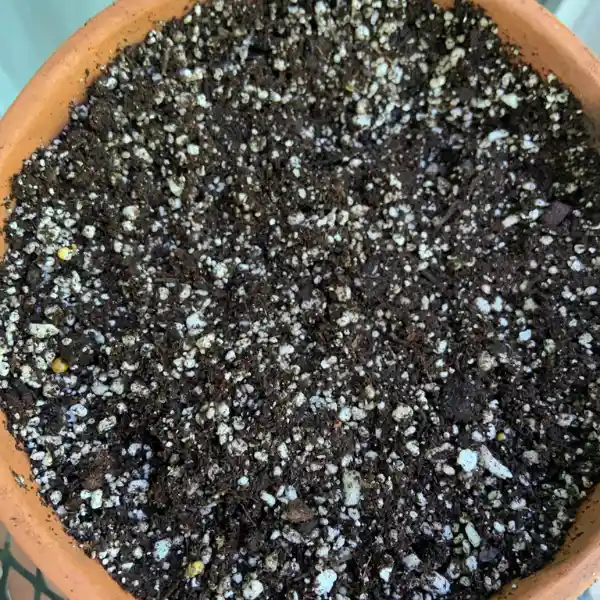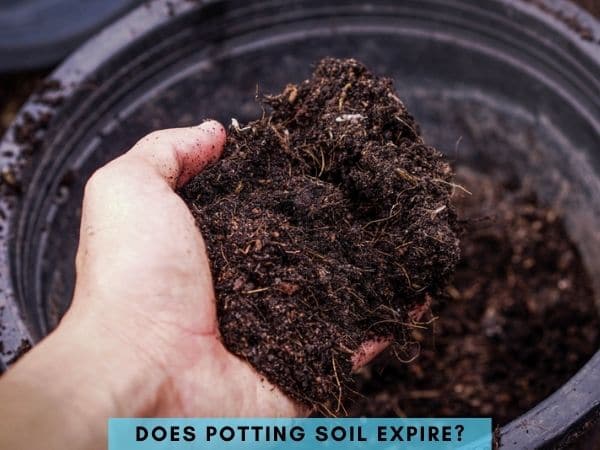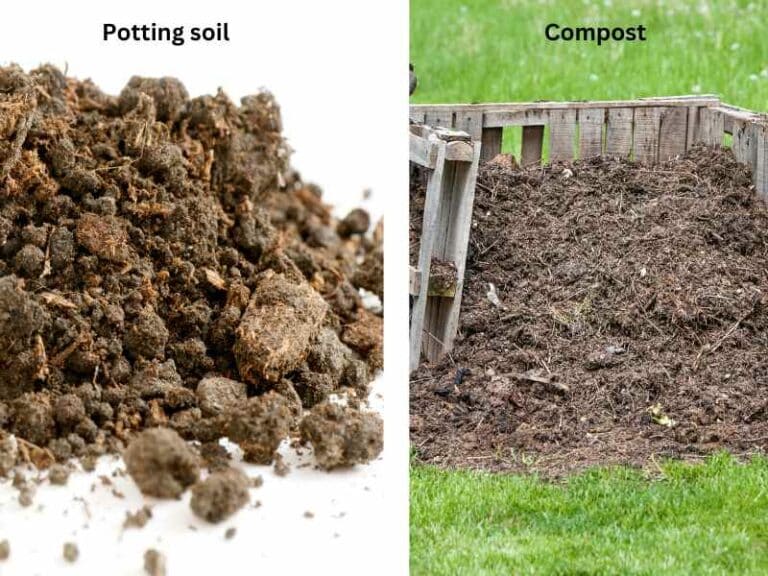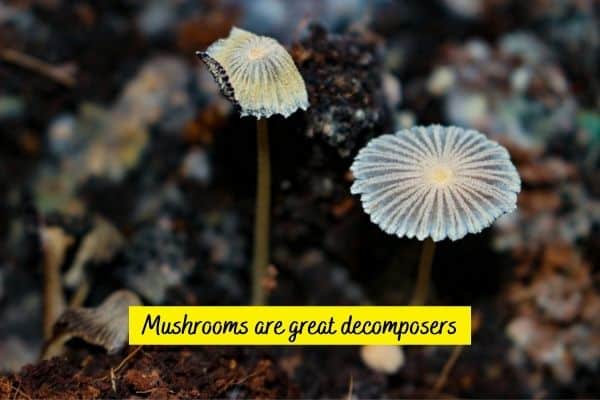Can You Compost Citrus Peels (Lemon and Orange)?
If you like composting like me, you know there are times when you have citrus remnants in your kitchen, and you wonder whether it is a good idea to toss them into your compost. Eggshells, vegetable scraps, coffee remnants, and most fruit scraps are great for composting, but not everything is good for your compost.
So, can you compost citrus?
You can add citrus fruit peels and remnants to a compost pile or decompose them separately in a compost bin. They break down over time and release nutrients such as nitrogen, potassium, and phosphorus. Citrus peels are acidic, but this can be neutralized by adding equal parts of carbon-rich brown material.
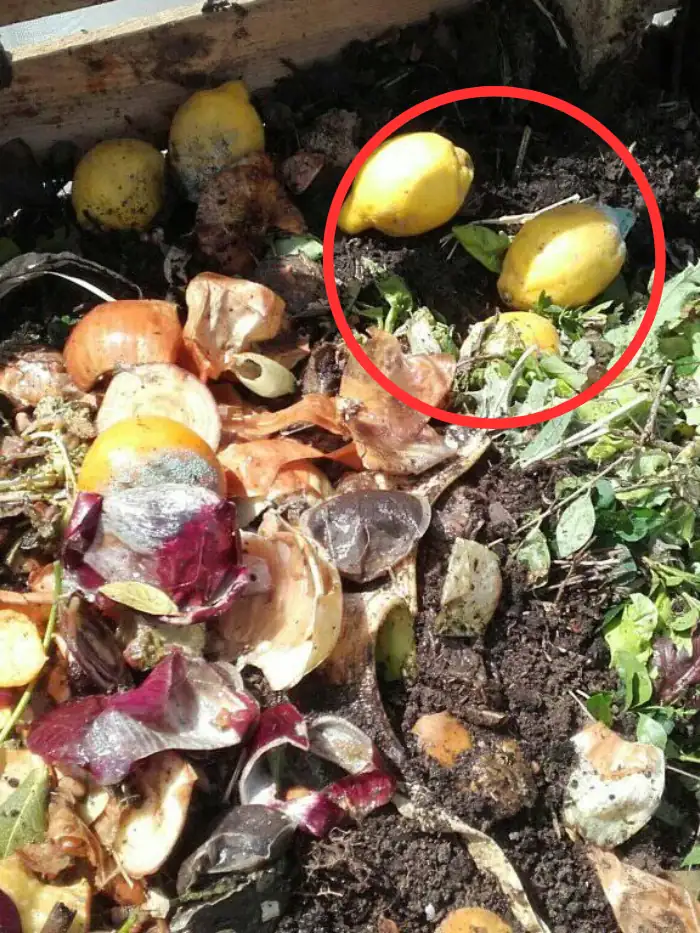
Why you can compost citrus?
The main concern when composting citrus fruits and peels is their acidity level. While lemon and grapefruits have high acidity that might sometimes affect the survival of microorganisms, orange citrus has low acidity and is safe for composting.
Besides, you can add brown, rich carbon matter such as dry leaves and cardboard to neutralize the acidity of the citruses with high acidity. In addition, minimize the acidity by adding small quantities of lemon and grapes peels.
Can you put citrus in a worm bin?
Avoid putting citrus fruits and peels in a worm bin or vermicompost. If you do, it should be limited, as Archana and Wang of the University of Hawaii advise.
Worms in vermicompost don’t like citrus fruits. Since vermicomposting relies on worms eating the materials to decompose them, adding citrus will be pointless.
Can you put too much citrus in your compost?
Avoid putting excess citrus peels in your compost. Citruses have high acidity, increasing the pH in the compost. High acidity conditions make it difficult for bacteria responsible for decomposition to break down the compost.
Instead of putting too much citrus in compost, add equal citrus peels and brown material to neutralize the acidity.
Benefits of lemon and orange peels in your compost
Putting citrus peels and fruits in compost is advantageous in the following ways.
- Lemon and orange peels decompose to release plant-friendly nutrients, including phosphorus, potassium, and nitrogen, that help plants thrive.
- Lemons and oranges heat up when decomposing. The extra heat accelerates the decomposition. In addition, the heat kills plant seeds in the compost, preventing them from germinating in the yard.
- Lemon and orange peels produce a strong scent when decomposing, which scavengers and some animals hate. The awful smell keeps these animals away from the compost.
How to compost orange and lemon peels
Composting lemon and orange peels is straightforward. You can compost them separately in a compost bin or add them to a compost pile.
1. Add the peels to a compost pile
Toss the peels into an existing compost in your backyard or farm. You, however, need to balance the amount of lemon and orange peels and carbon-rich brown material for neutral acidity. Add equal parts of peels and brown matter to the compost.
Cut the fruits and peels into smaller pieces to speed up decomposition. Turn the compost once or twice weekly and add water to moisten it. Add peels at the center of the compost to reduce the awful smell of the decomposing citrus fruits.
2. Compost the peels in a compost bin
Kitchen, vermicompost, or outdoor bins can compost citrus fruits and peels. Cut the peels or fruits into smaller pieces for faster breakdown and toss them into the bin. The peels will decompose after several months. Turn the peels often to increase decomposition.
Tips for efficient composting
- Cut the lemon and orange peels into smaller pieces so bacteria can break them down faster.
- Maintain compost temperature between 90oF and 144oF for faster decomposition, as Tom Richard of Cornell University advises. Extremely low temperatures reduce the decomposition rate, while higher temperatures can kill the microorganisms that break down the peels.
- If you add the citrus piles to compost, water it often to keep it moist. If let dry, the compost will smell bad and attract pests.
- If you’re composting orange and lemon peels directly in your yard, put them such that they contact the soil. Over time, the peels decompose and release nutrients directly into the soil.
- To avoid high acidity and imbalanced nutrients, add equal parts of peels and brown material.
- Turn the compost pile often to accelerate decomposition.
- Add the citrus peels to the center of the compost pile to contain the awful decomposing smell. Alternatively, compost in the fall when the weather is cool.
Wrapping up
Citrus peels are excellent green materials that add more nutrients to the soil when decomposing. Although some citrus, such as lemon and lime, have high acidity, you can still add them to compost but add equal parts carbon-rich material to neutralize the acidity.
Besides adding more nutrients, lemon and orange peels keep scavengers from the compost and produce heat, speeding up decomposition.
To compost citrus, toss them into an existing compost pile in your yard, or add them to a compost or kitchen bin. To make the peels decompose faster cut them into smaller pieces and add them to the compost. In addition, moisten and turn the pile often.
References
- Cornell University: Temperature.
- The University of Hawaii: Recycle Organic Waste Through Vermicomposting.


